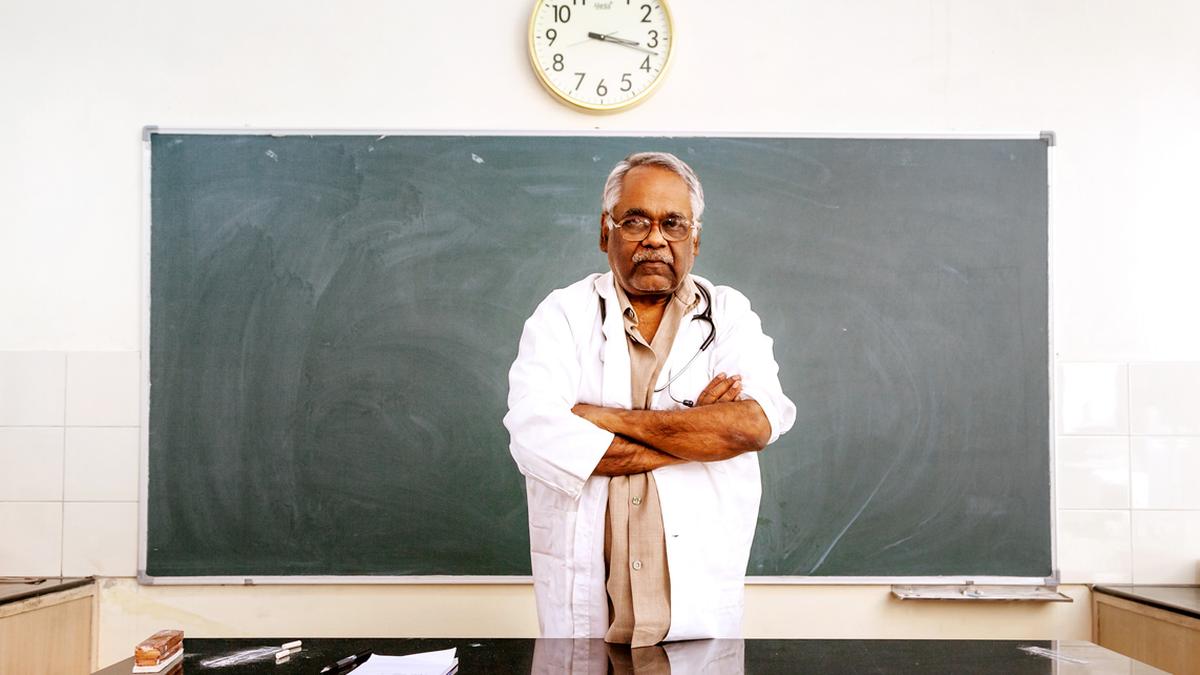Science
India’s Medical Education Faces Crisis as Standards Decline

The integrity of medical education in India is at risk as the practice of appointing non-MBBS holders with distance Ph.D. degrees to core teaching positions becomes increasingly common. This trend, which has emerged quietly over time, raises significant concerns about the standards of clinical training among future medical professionals.
The crux of the issue lies in the fact that many of these appointees have acquired their Ph.D. degrees through distance or part-time programs while maintaining full-time jobs elsewhere. Such arrangements typically hinder the essential immersive experiences crucial for academic development, as they lack the sustained, supervised clinical exposure vital for effective teaching in medical colleges.
Regulatory Oversight Lacking
The National Medical Commission (NMC), which oversees medical education in India, does not regulate these distance Ph.D. programs. As a result, the NMC has no authority over their curricula or the quality of education provided, leading to a situation where these doctoral credentials are presented as equivalent to those of clinically trained MBBS postgraduate faculty.
While the intention behind these appointments might be to address perceived faculty shortages, they effectively dilute the clinical and ethical foundations that are essential for producing competent physicians. The MBBS pathway, for instance, involves structured exposure to various medical disciplines, including Anatomy, Biochemistry, and Community Medicine, under a regulated framework that ensures accountability and professional conduct.
The impact on curriculum delivery is troubling. When medical colleges hire faculty members without the necessary clinical training, the richness of the educational experience diminishes. Students may learn facts but miss out on the critical context that connects theory to practice. For example, without adequate clinical mentorship, students may struggle to understand how biochemical changes manifest in real-world situations.
Concerns Over Quality and Ethics
Proponents of expanding the faculty pool often argue that “subject content is universal” and a research doctorate adds depth to teaching. While scholarly depth is important, the lack of immersive clinical experience significantly undermines the ability to teach effectively. Pedagogy in medical education is not merely about relaying information; it requires an understanding of its clinical relevance.
Moreover, the ethical implications of hiring non-MBBS teachers are concerning. There is a risk that lax standards could become normalized when students observe their instructors engaging superficially with updated guidelines or failing to demonstrate rigorous academic integrity. The message sent to aspiring MBBS graduates is disheartening: despite their hard-earned credentials, they see preferences granted to those who sidestep the demanding training they have undergone.
The justification for hiring these distance Ph.D. holders often hinges on claims of faculty shortages. However, an audit of available MBBS postgraduates reveals that bottlenecks typically arise from administrative inefficiencies rather than a lack of qualified candidates.
In a recent policy shift, the NMC had reduced the permissible percentage of non-MBBS faculty in various disciplines, acknowledging the importance of clinically anchored teaching for the Competency-Based Medical Education (CBME) framework. Yet, the rationale for reinstating higher quotas for non-MBBS appointees in the upcoming Teachers Eligibility Qualifications (TEQ) 2025 remains unclear and appears driven by expediency rather than evidence-based policy.
The long-term consequences of these decisions will likely be severe. If current trends persist, the quality of medical education in India may deteriorate further, impacting the preparedness of future healthcare professionals.
To preserve the integrity of medical education, the NMC must enforce stricter regulations regarding faculty qualifications. This includes ensuring that core teaching positions are held by MBBS graduates with requisite postgraduate qualifications and full-time academic engagement. Furthermore, a transparent audit system should be implemented to verify the credentials of faculty members, particularly those with distance Ph.D. degrees.
Ultimately, the future of medical education in India depends on a commitment to maintaining high standards and ensuring that the next generation of doctors is equipped to meet the complex healthcare challenges of tomorrow.
-

 World4 months ago
World4 months agoSBI Announces QIP Floor Price at ₹811.05 Per Share
-

 Lifestyle4 months ago
Lifestyle4 months agoCept Unveils ₹3.1 Crore Urban Mobility Plan for Sustainable Growth
-

 Science4 months ago
Science4 months agoNew Blood Group Discovered in South Indian Woman at Rotary Centre
-

 World4 months ago
World4 months agoTorrential Rains Cause Flash Flooding in New York and New Jersey
-

 Sports4 months ago
Sports4 months agoBroad Advocates for Bowling Change Ahead of Final Test Against India
-

 Top Stories4 months ago
Top Stories4 months agoKonkani Cultural Organisation to Host Pearl Jubilee in Abu Dhabi
-

 Science4 months ago
Science4 months agoNothing Headphone 1 Review: A Bold Contender in Audio Design
-

 Top Stories4 months ago
Top Stories4 months agoAir India Crash Investigation Highlights Boeing Fuel Switch Concerns
-

 Sports4 months ago
Sports4 months agoCristian Totti Retires at 19: Pressure of Fame Takes Toll
-

 Business4 months ago
Business4 months agoIndian Stock Market Rebounds: Sensex and Nifty Rise After Four-Day Decline
-

 Politics4 months ago
Politics4 months agoAbandoned Doberman Finds New Home After Journey to Prague
-

 Top Stories4 months ago
Top Stories4 months agoPatna Bank Manager Abhishek Varun Found Dead in Well









